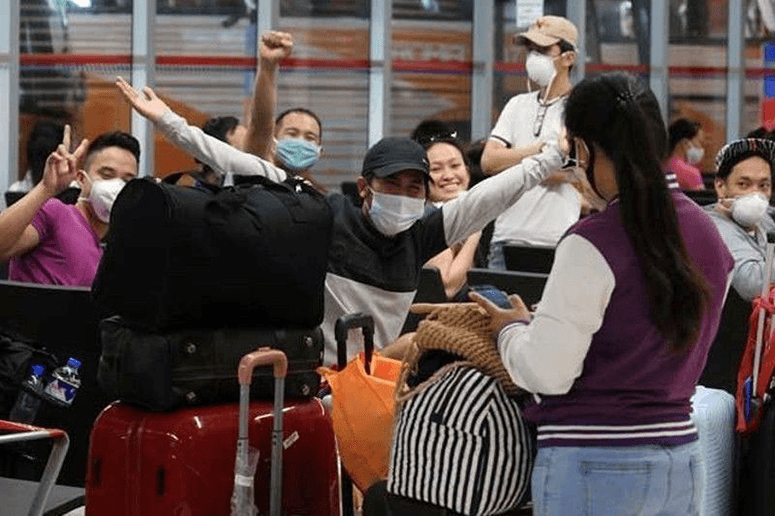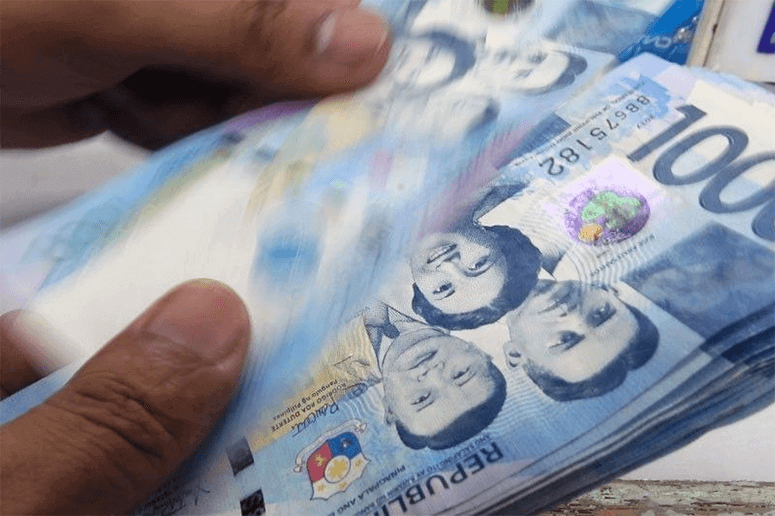Questions OFWs fear
I grew up with people around me looking up to OFWs (Overseas Filipino Workers) as unsung heroes, men and women who leave their families at home to live and work in other countries, all for the goal of building a brighter future, usually for their children.
When I became an adult and reached the stage of seeking my own fortune, I eventually ended up going abroad with my husband in our quest for better employment opportunities. We have been based in the Sultanate of Oman for many years now. Our two daughters were born in the capital city of Muscat; our oldest, now seven, attends the same school where we both work.
Being an OFW has both its pros and con. For the most part, the question boils down to, “Is it worth it?” Each OFW would have their own unique arguments; after all, our stories—and even our motivations—are never the same as the others’.

This life of being away from my home country, for years at a time, is not without its own share of realizations: some funny, others in-your-face realistic, most bittersweet.
One of the most notable and humorous aspects of OFW life is living in constant trepidation of certain questions, either from family members, other people in the Philippines, foreigners, or even fellow OFWs. Allow me to elaborate with the below list.
10 questions feared by OFWs
Fear factor: From mild (seeing a random insect inside one’s clothes) to pronounced (being chased by Freddy of Nightmare on Elm Street)
1. Saan ka sa atin? (Where are you from (in the Philippines)
Asked casually or conversationally, this question causes mild anxiety about a few things, mostly on finding out that people know who you or your family are and could subsequently spill the tea on what you’re really up to abroad; or discovering you have relatives, friends or enemies in common, forging an immediate bond that you actually wish to avoid.
Fear factor: 1/5
2. Magkano sahod mo? (How much do you earn?)
Although a taboo question in some cultures, a good number of Filipinos abroad are quite ruthless in asking this, especially with fellow OFWs. For those who wish to preserve their privacy and/or avoid being asked for loans (utang) or assistance (ayuda), this question causes hearts to palpitate quite strongly.
Fear Factor: 4/5

3. Ano ang lahi ng amo mo? (What’s the race or nationality of your employer?)
This is a question usually directed to Household Service Workers (HSWs) and nannies, as having particular races/nationalities as one’s employer is actually a status symbol. That is, some races/nationalities are deemed to be richer and more generous, leading people to believe that some HSWs earn more than others, depending on their employer.
Fear factor: 3/5

4. Pwede mo akong ipasok dyan? (Can you get me to work there, too?)
May occur as a follow-up question to numbers 2 or 3. Being with a supposedly “better” employer or earning higher pay, one is made to feel obligated to assist a kabayan (fellow countryman) in getting employed at their workplace for better opportunities. This could potentially lead to mild harassment in the form of unsolicited job applications or constant reminders on messaging apps checking for available jobs.
Fear Factor: 4/5
5. Gusto mong bumili ng...? (Would you like to buy…?)
A loaded question, usually one difficult to refuse. Most OFWs will have one side hustle or another, and usually ask their fellow OFWs for support, especially with food and beauty products. This is all well and good, if one has funds to spare. When the merchandise for sale is real estate, expensive cookware, or dodgy get-rich-quick memberships, the stakes become higher. People who sell these kinds of merchandise are usually quite persistent, which leads to our fairly significant fear factor below, especially if the person being asked has no funds to spare or no interest whatsoever.
Fear factor: 4/5
6. Gusto mong sumali sa...? (Would you like to join…?)
The same as question number 5, but with the weight of social obligation and pakisama. Groups could be as straightforward as a weekend computer skills class, basketball team or Filipino social club. Most of the time, groups that actively (read: persistently) recruit for membership abroad offer get-rich-quick schemes as mentioned above.
Fear factor: 5/5

7. Can you teach me English?
This question may not apply to OFWs in all countries, but only to certain areas where English is not the first language. This is a pick-up line, thinly veiled as a private tutoring offer, especially when asked by random men one meets in public places or transport.
Fear factor: 3/5
8. Kailan ka uuwi? (When are you going home?)
A question loaded with potential social obligations. This is usually asked by people left in the Philippines, which naturally leads to particular requests in terms of pasalubong (rubber shoes of a particular size, candies of a particular brand, clothes from a particular shop, etc.).On the other hand, if asked by a fellow OFW, this usually means they might want to send pasalubong with you to their families, to reduce their own excess baggage fees.
Fear factor: 5/5

9. Naaalala mo pa ba ‘yung inaanak mo? Malaki na siya. (Do you remember your godson or goddaughter? They have grown.)
Definitely entails a social obligation: pasalubong, donation to a school activity, financial assistance in their education or medical needs–maybe all three. This question is especially feared if the godmother or godfather has no funds to spare.
Fear Factor: 5/5
10. ’Musta? (How are you?)
This notorious Dark Lord of questions is often asked by relatives or friends in the Philippines, especially towards the end of month.
Sometimes you don’t even know who these people are; they just claim to be distant family or school acquaintances. This usually occurs when the OFW being asked appears to have funds to spare, for instance, they hold a managerial position or some such thing.
In the latter case, run. Don’t look back. Or just block. You know what I mean.


